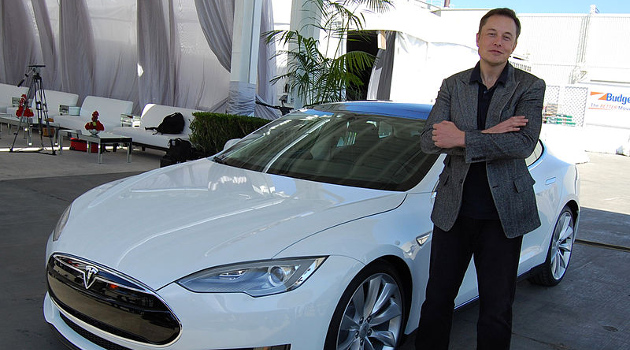Originally published by RealClearEnergy on July 30, 2020.
Over the last week, the media has reported that Elon Musk’s Tesla is making money hand over fist. In reality, however, like Musk’s aerospace company SpaceX, Tesla is using fists – the government’s – to take money from the taxpayers.
To avoid going into the red, Tesla leverages government mandates requiring the production of electric cars to mulct other car companies that don’t make EVs – or enough of them – into buying “credits” from Elon in lieu of doing so.
Essentially, other car companies must choose between diverting capital into unprofitable electric cars or diverting money into Elon Musk’s pockets.
It’s cheaper and easier to do the latter than to expend the even larger sums it would take to design, tool, and manufacture their own electric cars, which they’d then have to try to sell without losing money again. Their dealers don’t want cars they can’t get enough people to buy to make it worthwhile – even with the incentive of thousands of dollars of other people’s money (tax credits) thrown in as part of the deal. It looks bad to have what amounts to electrified Azteks just sitting there, collecting dust and taking up valuable floor space that could be used to display cars that people want to buy – and do – without being paid off to buy them.
No one wants to be the automotive Goodwill store.
One analyst notes that Tesla’s reported profits “are more than accounted for by $1 billion in regulatory credits sold to other carmakers during the 12 months (up to) June.” (italics mine). But these credits would never have been bought absent the government mandate. According to Morningstar’s David Whiston, “Tesla had a pre-tax loss of $278 million excluding $428 million regulatory credit revenue.” This is how Tesla makes – or rather, takes – its money. But that’s not how it’s reported.
The analyst went on to state that Tesla “… is only able to earn this income because rivals haven’t gotten their act together yet on building enough electric vehicles and have to buy credits to satisfy emissions regulators.”
Gotten their act together?
EV apologists makes it sound like a car company only wanting to build what people are willing to buy at a price that makes it worth making is a disreputable thing. And that’s the problem with electric cars – they are not worth it for most manufacturers; at least presently. If they were, the government would not need to impose production quotas. There are no production quotas for iPhones – and Apple doesn’t need to get the government to strong-arm Samsung to buy “credits” from them in order to stay in business. But car companies that make what people want to buy – and what is profitable to sell – are shamed for not viewing the government as their customer like Tesla does.
Tesla “earns” this money in the same way as the IRS. The difference is that Tesla is a privately-owned company using the same offer-you-can’t-refuse methods. Elon Musk is on track to pocket another couple of billion for this very reason, something only possible because of his silent partner, the government. It’s easy making money when you can simply take it.
But as the aforementioned analyst also notes, “this good fortune won’t last forever” – because, eventually, the other car companies will “get their act together” – meaning, they’ll cave into the regulatory pressure and build the required number of electric cars. Perhaps nothing but electric cars – as VW has publicly said it will do by 2025, after being practically crucified by the government for selling millions of 50 MPG (at only about $22,000) diesel-powered cars that people jostled in line to buy. Which they can no longer buy – because the government outlawed them.
At any rate, once VW builds nothing but electric cars, they will no longer have to pay Elon to build electric cars. However, someone will still have to pay for all these government mandated EVs, which are currently impossible to sell for a profit without someone else taking a loss. Nissan, for example, has been bled for “selling” its Leaf electric car. It frequently only leaves the showroom floor when its new owner’s receive tax credits to the tune of several thousand dollars, and the window stickers of all the other cars on the floor increase to offset the loss.
The only reason Nissan builds the Leaf at all is to meet the regulatory requirements. It would probably be cheaper – and easier – to line Elon’s pockets, as GM, Toyota and other car companies have been doing. But it will get a lot more expensive for everyone when all you’re able to buy is an electric car, and it’s no longer possible to use the government to make someone else pay for it.
———
Image credit: Maurizio Pesce | CC BY 2.0.

